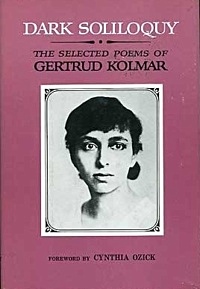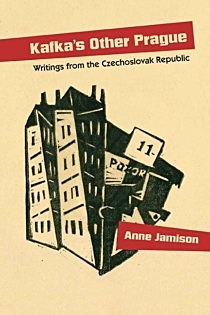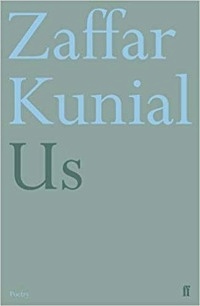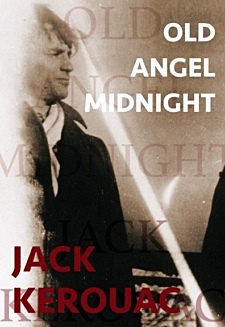Fleurs du Mal Magazine


Or see the index
A writer who defies categorization, Daniil Kharms has come to be regarded as an essential artist of the modernist avant-garde.
 His writing, which partakes of performance, narrative, poetry, and visual elements, was largely suppressed during his lifetime, which ended in a psychiatric ward where he starved to death during the siege of Leningrad.
His writing, which partakes of performance, narrative, poetry, and visual elements, was largely suppressed during his lifetime, which ended in a psychiatric ward where he starved to death during the siege of Leningrad.
His work, which survived mostly in notebooks, can now be seen as one of the pillars of absurdist literature, most explicitly manifested in the 1920s and ’30s Soviet Union by the OBERIU group, which inherited the mantle of Russian futurism from such poets as Vladimir Mayakovsky and Velimir Khlebnikov.
This selection of prose and poetry provides the most comprehensive portrait of the writer in English translation to date, revealing the arc of his career and including a particularly generous selection of his later work.
DANIIL KHARMS (1905–1942) was a major figure in twentieth-century Russian and Soviet literature. An enigmatic and genre-bending artist, he was among the most significant voices in what came to be known as the literature of Russian absurdism.
ALEX CIGALE was awarded an NEA Literary Translation Fellowship in 2015. His translations from Russian and his original poetry in English have appeared in such journals as the New England Review, PEN America, TriQuarterly, and World Literature Today.
“…lively and funny… a profound and subtle testament to Kharms.” —Times Literary Supplement
Daniil Kharms:
Russian Absurd.
Selected Writings
Translated from the Russian by Alex Cigale
Northwestern World Classics
Poetry
February 2017
ISBN 978-0-8101-3457-7
280 pages
Trade Paper
$24.95
# new books
Russian Absurd
Selected Writings
Daniil Kharms;
Translated from the Russian by Alex Cigale
fleursdumal.nl magazine
More in: #Biography Archives, - Book News, Archive K-L, Archive K-L, Art & Literature News, Constructivism, Futurisme, Kharms (Charms), Daniil

Sehnsucht
Ich denke dein,
Immer denke ich dein.
Menschen sprachen zu mir, doch ich achtet es nicht.
Ich sah in des Abendhimmels tiefes Chinesenblau, daran
der Mond als runde gelbe Laterne hing,
Und sann einem anderen Monde, dem deinen, nach,
Der dir glänzender Schild eines ionischen Helden vielleicht
oder sanfter goldener Diskus eines erhabenen Werfers wurde.
Im Winkel der Stube saß ich dann ohne Lampenlicht,
tagmüde, verhüllt, ganz dem Dunkel gegeben,
Die Hände lagen im Schoß, Augen fielen mir zu.
Doch auf die innere Wand der Lider war klein und unscharf
dein Bild gemalt.
Unter Gestirnen schritt ich an stilleren Gärten, den Schatten-
rissen der Kiefern, flacher, verstummter Häuser,
steiler Giebel vorbei
Unter weichem düsteren Mantel, den nur zuweilen
Radknirschen griff, Eulenschrei zerrte,
Und redete schweigend von dir, Geliebter, dem lautlosen,
dem weißen mandeläugigen Hunde, den ich geleitete.
Verschlungene in ewigen Meeren ertrunkene Nächte!
Da meine Hand in den Flaum deiner Brust sich bettete
zum Schlummer,
Da unsere Atemzüge sich mischten zu köstlichem Wein,
den wir in Rosenquarzschale darboten unserer Herrin,
der Liebe,
Da in Gebirgen der Finsternis die Druse uns wuchs und
reifte, Hohlfrucht aus Bergkristallen und fliedernen
Amethysten,
Da die Zärtlichkeit unsere Arme Feuertulpen
porzellanblaue Hyazinthen aus welligen, weiten, ins
Morgersgraun reichenden Schollen rief,
Da, auf gewundenem Stengel spielend, die halberschlossene
Knospe des Mohns wie Natter blutrot über uns züngelte,
Des Ostens Balsam- und Zimmetbäume mit zitterndem
Laube um unsere Lager sich hoben
Und purpurne Weberfinken unserer Munde Hauch in
schwebende Nester verflochten. –
Wann wieder werden wir in des Geheimnisses Wälder fliehn,
die, undurchdringlich, Hinde und Hirsch vor dem
Verfolger schützen?
Wann wieder wird mein Leib deinen hungrig bittenden
Händen weißes duftendes Brot, wird meines Mundes
gespaltene Frucht deinen dürstenden Lippen süß sein?
Wann wieder werden wir uns begegnen?
Innige Worte gleich Samen von Wurzkraut und Sommer-
blumen verstreun
Und beglückter verstummen, um nur die singenden
Quellen unseres Blutes zu hören?
(Fühlst du, Geliebter, mein kleines horchendes Ohr, ruhend
an deinem Herzen?)
Wann wieder werden im Nachen wir gleiten unter zitronfarbnem
Segel,
Von silbrig beschäumter, tanzender Woge selig gewiegt,
Vorüber an Palmen, die grüner Turban schmückt wie den
Sproß des Propheten,
Den Saumriffn ferner Inseln entgegen, Korallenbänken,
an denen du scheitern willst?
Wann wieder, Geliebter . . . wann wieder . . ? . .
Nun sintert mein Weg
Durch Ödnis. Dorn ritzt den Fuß.
Bäche, frische, erquickende Wasser, murmeln; aber ich finde
sie nicht.
Datteln schwellen, die ich nicht koste. Meine verschmachtende
Seele
Flüstert ein Wort nur, dies einzige:
»Komm. . .«
O komm …
Gertrud Kolmar
(1894-1943)
Gedicht: Sehnsucht
fleursdumal.nl magazine
More in: Archive K-L, Archive K-L, Kolmar, Gertrud
Kafka’s Other Prague: Writings from the Czechoslovak Republic examines Kafka’s late writings from the perspective of the author’s changing relationship with Czech language, culture, and literature—the least understood facet of his meticulously researched life and work.
 Franz Kafka was born in Prague, a bilingual city in the Habsburg Empire. He died a citizen of Czechoslovakia. Yet Kafka was not Czech in any way he himself would have understood. He could speak Czech, but, like many Prague Jews, he was raised and educated and wrote in German. Kafka critics to date have had little to say about the majority language of his native city or its “minor literature,” as he referred to it in a 1913 journal entry. Kafka’s Other Prague explains why Kafka’s later experience of Czech language and culture matters.
Franz Kafka was born in Prague, a bilingual city in the Habsburg Empire. He died a citizen of Czechoslovakia. Yet Kafka was not Czech in any way he himself would have understood. He could speak Czech, but, like many Prague Jews, he was raised and educated and wrote in German. Kafka critics to date have had little to say about the majority language of his native city or its “minor literature,” as he referred to it in a 1913 journal entry. Kafka’s Other Prague explains why Kafka’s later experience of Czech language and culture matters.
Bringing to light newly available archival material, Anne Jamison’s innovative study demonstrates how Czechoslovakia’s founding and Kafka’s own dramatic political, professional, and personal upheavals altered his relationship to this “other Prague.” It destabilized Kafka’s understanding of nationality, language, gender, and sex—and how all these issues related to his own writing.
Kafka’s Other Prague juxtaposes Kafka’s German-language work with Czechoslovak Prague’s language politics, intellectual currents, and print culture—including the influence of his lover and translator, the journalist Milena Jesenská—and shows how this changed cultural and linguistic landscape transformed one of the great literary minds of the last century.
Anne Jamison is an associate professor of English at the University of Utah.
Kafka’s Other Prague
Writings from the Czechoslovak Republic
by Anne Jamison
Publication Date June 2018
Northwestern University Press
Paper Text – $34.95
ISBN 978-0-8101-3720-2
Cloth Text – $99.95
ISBN 978-0-8101-3721-9
Categorie: Literary Criticism
208 pages
# new books
Kafka’s Other Prague
fleursdumal.nl magazine
More in: - Book News, - Book Stories, Archive K-L, Archive K-L, Franz Kafka, Kafka, Franz, Kafka, Franz
![]()
Weg van mijn stilte
In het venster waaien de bomen
met hun takken maken ze de wind
maar nu het winter is en ze
naakt zijn blijft het toch waaien
Bij de haard benee’ bomen ze zacht
de boze woorden mogen ze niet storen
als die wakker worden galmt
de onmin door de slaande wind
In mijn kamer slaat een boomtak
tegen de ijsbloemen op het raam
waar ik jouw naam op schrijf
dat je van hier bent weggewaaid
weten de bomen, ik heb het ze verteld
het is net zoiets als loslaten
als vallend blad, dat voor altijd
weg van mijn stilte, weg van mij waait
Niels Landstra
Op 24 november 2018 verschijnt de Vijfde dichtbundel: Entree naar de hemel van Niels Landstra. Niels Landstra is a poet and writer, who lives and works in Raamsdonksveer (nl)
fleursdumal.nl magazine
More in: - Book News, Archive K-L, Art & Literature News, Landstra, Niels

Die Einsame
Ich ziehe meine Einsamkeit um mich,
Sie ist so wie ein wärmendstes Gewand
An mir geworden ohne Kniff noch Stich,
Wenn auch der Ärmel fällt tief über meine Hand.
Ein Ungekannter hat ihr Maß gezirkt,
Die fremdes Antlitz fühlt als trübes Wehn;
Die großen Schwarzhalsschwäne sind gewirkt
In ihre Falten; aber ich nur kann sie sehn.
Es tun sich meine innren Blicke auf
– Ein Pfauenauge, das die Flügel schließt –
Und schaun der Welle jadefarbnen Lauf,
Die alte Säume licht und strömend übergießt.
Sie feuchten so wie einer Elbe Haar.
Sie tragen noch den Fluss. Sie schleppen tief.
Und graues Berggestade fängt das Jahr,
Das wie ein Vogel ängstlich seine Tage rief.
Und nun ist Schweigen, Und das Kleid schwillt nun.
Und ich muss wachsen, dass es mir noch ziemt,
Drin Fische, wie sie niemals wirklich tun,
Um meine Brüste schweben, pupurblau gekiemt.
Der Erde Körner sind hineingesät.
Aus meiner Schulter bricht ein Felsengold,
Das Tuch durchschimmernd, das sich schleift und bläht
Und langsam über meiner Stirn zusammenrollt.
Gertrud Kolmar
(1894-1943)
gedicht: Die Einsame
fleursdumal.nl magazine
More in: Archive K-L, Archive K-L, Kolmar, Gertrud
Original, touching and much-anticipated first collection from star of the Faber New Poets scheme.

Zaffar Kunial was born in Birmingham and lives in Hebden Bridge.
He published a pamphlet in the Faber New Poets series in 2014 and spent that year as the Wordsworth Trust Poet-in-Residence.
Since his first public reading, of ‘Hill Speak’ at the 2011 National Poetry Competition awards, he has spoken at various literature festivals and in programmes for BBC radio, and won the Geoffrey Dearmer Prize for his poem ‘The Word’.
Us (Faber New Poets)
by Zaffar Kunial (Author)
Paperback
5 Jul 2018
Paperback: 64 pages
Publisher: Faber & Faber
Language: English
ISBN-10: 0571337651
ISBN-13: 978-0571337651
Dimensions: 195 x 135 x 10 mm
Publisher: Faber & Faber
new books
fleursdumal.nl magazine
More in: - Book News, Archive K-L, Archive K-L, Art & Literature News
Old Angel Midnight is a treasure trove of Kerouac’s experiments with automatic writing, a method he practiced constantly to sharpen his imaginative reflexes.
 Recorded in a series of notebooks between 1956-1959, what Kerouac called his “endless automatic writing piece” began while he shared a cabin with poet Gary Snyder. Kerouac tried to emulate Snyder’s daily Buddhist meditation discipline, using the technique of “letting go” to free his mind for pure spontaneous writing, annotating the stream of words flowing through his consciousness in response to auditory stimuli and his own mental images.
Recorded in a series of notebooks between 1956-1959, what Kerouac called his “endless automatic writing piece” began while he shared a cabin with poet Gary Snyder. Kerouac tried to emulate Snyder’s daily Buddhist meditation discipline, using the technique of “letting go” to free his mind for pure spontaneous writing, annotating the stream of words flowing through his consciousness in response to auditory stimuli and his own mental images.
Kerouac continued his exercise in spontaneous composition over the next three years, including a period spent with William Burroughs in Tangiers. He made no revisions to the automatic writing entries in his notebooks, which were collected and transcribed for publication as originally written.
Old Angel Midnight attests to the success of Kerouac’s experiment and bears witness to his commitment to his craft, and to the pleasure he takes in writing: “I like the bliss of mind.”
Jack Kerouac (1922-1969) was a principal actor in the Beat Generation, a companion of Allen Ginsberg and Neal Cassady in that great adventure. His books include On the Road, The Dharma Bums, Mexico City Blues, Lonesome Traveler, Visions of Cody, Pomes All Sizes (City Lights), Scattered Poems (City Lights), and Scripture of the Golden Eternity (City Lights).
Title Old Angel Midnight
Author Jack Kerouac
Preface by Ann Charters, Michael McClure
Collection City Lights/Grey Fox
Publisher City Lights Publishers
Poetry
Published 2016
Format Paperback
ISBN-10 087286703X
ISBN-13 9780872867031
94 pages
List Price $13.95
Books That Everyone Should Read
fleursdumal.nl magazine
More in: #Beat Generation Archives, *Archive Les Poètes Maudits, - Book Stories, Archive K-L, DRUGS & DISEASE & MEDICINE & LITERATURE, Kerouac, Jack, Opium-Eaters

Der Wal
K. J. gewidmet
Du. Dich wollt ich vom Himmel mir krallen,
Reißen tief in mein Leben hinein;
Tag ist eben zu Splittern zerfallen,
Sonne tröpfelt, nun süßerer Wein.
Ob meiner Hand,
Greisingewand,
Schleiert schon weißer der neblichte Schein.
Du. Du weidest auf kühleren Wiesen,
Schaumglasäckern, Gefilden der Flut,
Hinverwandelt zum schwebenden Riesen,
Der bei den Müttern der Bläue ruht.
Felsen von Eis
Stromen dir leis
Reinere Kissen, ihr silbernes Blut.
Was du empfunden, als Labe, als Beule,
Was du in Helle gedacht und begehrt,
Wirft dir vom Haupte die tanzende Säule
Höher ins Dunkel, das sprudelnde Schwert.
Lilie aus Gischt
Blüht und erlischt:
Seele, von ewigem Wogen verzehrt.
Warst du so stark je, so Stummheit und Rune?
War je dein Atem so hauchend und groß?
Stürzt dir mein frevelnder Schrei die Harpune,
Zerrst du durch jagende Qualen dich los?
Irgendwo weit,
Leicht in der Zeit,
Taumelt ein leeres, gekentertes Floß.
Gertrud Kolmar
(1894-1943)
gedicht: Der Wal
fleursdumal.nl magazine
More in: Archive K-L, Archive K-L, Kolmar, Gertrud

Der Engel im Walde
Gib mir deine Hand, die liebe Hand, und komm mit mir;
Denn wir wollen hinweggehen von den Menschen.
Sie sind klein und böse, und ihre kleine Bosheit haßt und peinigt uns.
Ihre hämischen Augen schleichen um unser Gesicht, und
ihr gieriges Ohr betastet das Wort unseres Mundes.
Sie sammeln Bilsenkraut . . .
So laß uns fliehn
Zu den sinnenden Feldern, die freundlich mit Blumen und
Gras unsere wandernden Füße trösten,
An den Strom, der auf seinern Rücken geduldig wuchtende
Bürden, schwere, güterstrotzende Schiffe trägt,
Zu den Tieren des Waldes, die nicht übelreden.
Komm.
Herbstnebel schleiert und feuchtet das Moos mit dumpf
smaragdenem Leuchten.
Buchenlaub rollt, Reichtum goldbronzener Münzen.
Vor unseren Schritten springt, rote zitternde Flamme,
das Eichhorn nur.
Schwarze gewundene Erlen züngeln am Pfuhl empor in
kupfriges Abendglasten.
Komm.
Denn die Sonne ist nieder in ihre Höhle gekrochen, und ihr
warmer rötlicher Atem verschwebt.
Nun tut ein Gewölb sich auf.
Unter seinem graublauen Bogen zwischen bekrönten Säulen
der Bäume wird der Engel stehn,
Hoch und schmal, ohne Schwingen.
Sein Antlitz ist Leid.
Und sein Gewand hat die Bleiche eisig blinkender Sterne
in Winternächten.
Der Seiende,
Der nicht sagt, nicht soll, der nur ist,
Der keinen Fluch weiß noch Segen bringt und nicht in
Städte hinwallt zu dem, was stirbt :
Er schaut uns nicht
In seinem silbernen Schweigen.
Wir aber schauen ihn,
Weil wir zu zweit und verlassen sind.
Vielleicht
Weht ein braunes, verwelktes Blatt an seine Schulter,
entgleitet;
Das wollen wir aufheben und verwahren, ehe wir weiterziehn.
Komm, mein Freund, mit mir, komm.
Die Treppe in meines Vaters Haus ist dunkel und krumm
und eng, und die Stufen sind abgetreten;
Aber jetzt ist es das Haus der Waise, und fremde Leute wohnen darin.
Nimm mich fort.
Schwer fügt der alte rostige Schlüssel im Tor sich meinen
schwachen Händen.
Nun knarrt es zu.
Nun sieh mich an in der Finsternis, du, von heut meine Heimat.
Denn deine Arme sollen mir bergende Mauern baun,
Und dein Herz wird mir Kammer sein und dein Auge mein
Fenster, durch das der Morgen scheint.
Und es türmt sich die Stirn, da du schreitest.
Du bist mein Haus an allen Straßen der Welt, in jeder
Senke, auf jedem Hügel.
Du Dach, du wirst ermattet mit mir unter glühendem
Mittag lechzen, mit mir erschauern, wenn Schneesturm
peitscht.
Wir werden dürsten und hungern, zusammen erdulden,
Zusammen einst an staubigem Wegesrande sinken und weinen …
Gertrud Kolmar
(1894-1943)
gedicht: Der Engel im Walde
fleursdumal.nl magazine
More in: Archive K-L, Archive K-L, Kolmar, Gertrud

Die Verlassene
An K. J.
Du irrst dich. Glaubst du, daß du fern bist
Und daß ich dürste und dich nicht mehr finden kann?
Ich fasse dich mit meinen Augen an,
Mit diesen Augen, deren jedes finster und ein Stern ist.
Ich zieh dich unter dieses Lid
Und schließ es zu und du bist ganz darinnen.
Wie willst du gehn aus meinen Sinnen,
Dem Jägergarn, dem nie ein Wild entflieht?
Du läßt mich nicht aus deiner Hand mehr fallen
Wie einen welken Strauß,
Der auf die Straße niederweht, vorm Haus
Zertreten und bestäubt von allen.
Ich hab dich liebgehabt. So lieb.
Ich habe so geweint … mit heißen Bitten …
Und liebe dich noch mehr, weil ich um dich gelitten,
Als deine Feder keinen Brief, mir keinen Brief mehr schrieb.
Ich nannte Freund und Herr und Leuchtturmwächter
Auf schmalem Inselstrich,
Den Gärtner meines Früchtegartens dich,
Und waren tausend weiser, keiner war gerechter.
Ich spürte kaum, daß mir der Hafen brach,
Der meine Jugend hielt – und kleine Sonnen,
Daß sie vertropft, in Sand verronnen.
Ich stand und sah dir nach.
Dein Durchgang blieb in meinen Tagen,
Wie Wohlgeruch in einem Kleide hängt,
Den es nicht kennt, nicht rechnet, nur empfängt,
Um immer ihn zu tragen.
Gertrud Kolmar
(1894-1943)
gedicht: Die Verlassene
fleursdumal.nl magazine
More in: Archive K-L, Archive K-L, Kolmar, Gertrud

Krähen
Ich will den Tag verbringen in den Feldern,
Will lächerlich wie jene Scheuche stehn;
Die großen Vögel möchten aus den Wäldern
Auch so auf mein Gewand herniederwehn,
Um Schultern krallen, flüstern in mein Ohr
Aus Mären, die im grünen Buch sie lasen,
Von Hugin und von Munin, Tyr und Thor,
Von Yggrasill dem Weltenbaum der Asen,
Und von der Väter Dienstwerk beim Adepten,
Des Roten Leuen Sud, dem Blumengift,
Der Mauerspalte, drein sie bergend schleppten
Des siechen Herrn geheim erfundne Schrift,
Und anderes Gewinde, blumig kraus,
Altfränkisch duftend wie Levkojenblüten,
Was ihnen nachtrab schrieb und Fledermaus
Und was sie selbst in klugen Häuptlein hüten.
Doch manche würden gleich die Scholle hacken
um meine Füße, die zum Kosten lädt
So wie ein Würzbrot, feucht und frisch vom Backen,
Bereitet mit dem blanken Feldgerät,
An weißen mandeln und dem Zitronat,
An Engerlingen sich und Würmern letzen,
Der Süße endlich satt zu Rast und Rat
Und schweigend sich auf meine Hände setzen.
Und einmal schlügen Schwärme, Riesenwehe,
Den wilden Flug aus Mitternacht mir nah
Mit harten Liedern, die nur ich verstehe,
In ihrem scharfen, ungefügen Krah,
Mit unheilvollem Braus im düstren Kleid
Und mit erzürntem, drohendem Bewegen;
So fielen sie in gotteslose Zeit
Und auf die Länder als ein schwarzer Regen,
Die Welt verstummte. Bis der Weiler stöhnte.
Und weithin klagte heulend eine Stadt
Zerfreßnes Auge, das den Vater höhnte
Und seiner Mutter Herz verstoßen hat.
Gertrud Kolmar
(1894-1943)
gedicht: Krähen
fleursdumal.nl magazine
More in: Archive K-L, Archive K-L, Kolmar, Gertrud

Écrits
La vie répond – ce n’est pas vain
on peut agir
contre – pour
La vie exige
le mouvement
La vie c’est le cours du sang
le sang ne s’arrête pas de courir dans les veines
je ne peux pas m’arrêter de vivre
d’aimer les êtres humains
comme j’aime les plantes
de voir dans les regards une réponse ou un appel
de sonder les regards comme un scaphandre
mais rester là
entre la vie et la mort
à disséquer des idées
épiloguer sur le désespoir
Non
ou tout de suite : le revolver
il y a des regards comme le fond de la mer
et je reste là
quelquefois je marche et les regards se croisent
tout en algues et détritus
d’autres fois chaque être est une réponse ou un appel
Laure
(Colette Peignot 1903 – 1938)
Écrits
fleursdumal.nl magazine
More in: Archive K-L, Archive O-P, Laure (Colette Peignot)
Thank you for reading Fleurs du Mal - magazine for art & literature